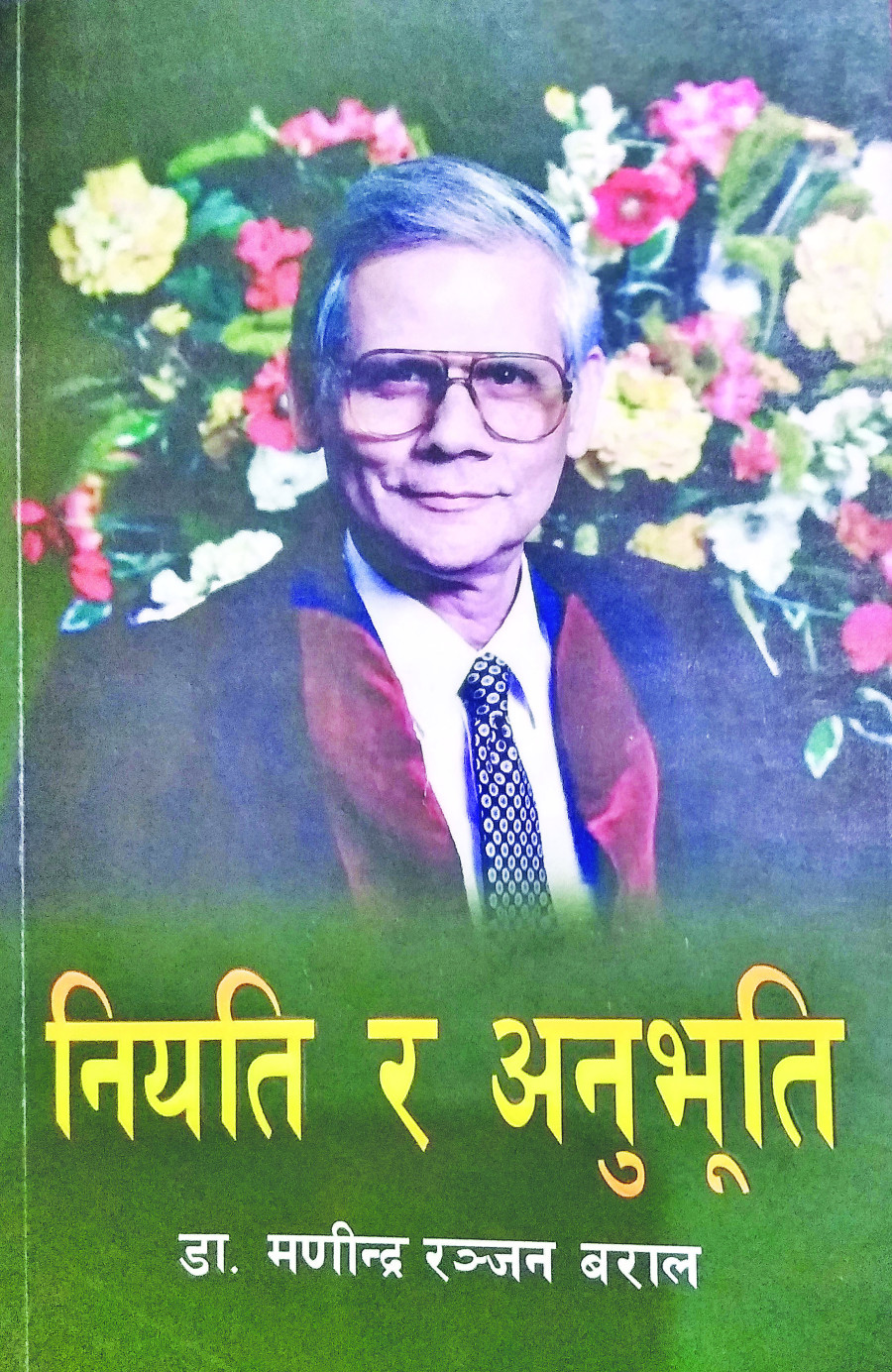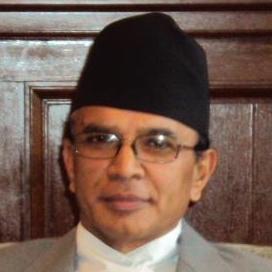Books
Memories and musings
With his book, Manindra Ranjan Baral has done a commendable job of writing an autobiography that—besides unravelling his life’s work—also encapsulates the state of affairs in Nepal.
Madan Kumar Bhattarai
Dr Manindra Ranjan Baral is one of the most senior paediatricians of the country. At 84, Baral has brought out his autobiography with a very pertinent title, ‘Niyati ra Anubhuti’ that can roughly be translated as ‘fate and reflections’. The book though published in the closing months of 2018 is less known to many as it seems to have suffered the pangs of distribution as the publishers are not that familiar.
Baral, an established name in terms of both public and private services as a senior doctor, has done a commendable job of writing his autobiography that, besides unravelling his life’s work and his contributions to society at large, also encapsulates the state of affairs in Nepal.
The book starts with a wonderful introduction of both the book and the writer by one of the rare brains in politics, Pradeep Giri, who greets Baral with his family name Shambhu Dai, as they belong to the same area, Bastipur, of Siraha district. Baral belongs to an intellectual family and has a flair in Sanskrit and English; he is also gifted in music—apart from his chosen field of medicine.
The book intends to picture the life of the noted paediatrician since his birth at Bastipur, his educational pursuits in Nepal and various parts of the world including India and the United Kingdom in 23 chapters. Nineteen pages of the book are devoted to write-ups in the form of news reports and articles in admiration of Baral. He seems to loathe the way people become authors these days through a flourishing phenomenon called ghostwriting. Baral, avowedly a liberal and democrat, presents his home district, Siraha, as a unique amalgam of royalists, democrats, republicans, intellectuals, businessmen and even diplomats.
Some of the major names included in his book are Dr Tulsi Giri, Vedananda Jha, Upendra Yadav, Dr Ishwar Upadhyaya, Leelanateshwar Sharma Baral, more popularly known as Ishwar Baral, Dr Upendra Mahato, and Ram Raja Prasad Singh. He also compliments other public figures like Ambassador Bindeshwari Shah and laments the styles of some people including top medical people who behaved in a different manner owing to their connections to the Royal Palace.
The book can also be taken as an encyclopedia of not only medicos but also public figures of various disciplines including politics and even places of interest. For outsiders, the author has special compliments for people like the late Indian Prime Minister Lal Bahadur Shastri and Ryutaro Hashimoto who served as Prime Minister of Japan. Being instrumental in mobilising support for Kanti Children's Hospital, Hashimoto, an established photographer, was a great friend of Nepal, who loved the Himalayas and visited our country as many as 33 times and even named his son who has followed his father in terms of politics, as Gaku Hashimoto meaning mountain in Japanese.
Baral, through the book, intends to portray the deep malaise that has infected Nepali society at large in recent years through what can be called a process of deconstruction and disharmony practised through blatantly partisan politics, which is eating into the very essence of Nepali society.
He also laments the increasing deficit of transparency and accountability in Nepal's system of governance.
Dr Baral is an authority not only in terms of chosen areas of medicine and music, he is also a connoisseur of people of all hues, their relations and family linkages. While he is very positive in dealing with people, Baral minces no words in calling a spade a spade in case of many people he has come across in his life.
Despite all these plus points, there are some obvious mistakes in the book. For example, Radha Raman Upadhyaya, who came to Bastipur from his home district of Udayapur for enrolment in a primary school, was never a Chief Secretary as mentioned in the book (pages 7 and 32). Upadhyaya retired as a Secretary and became Chief Commissioner of the Commission for the Investigation of the Abuse of Authority, an outfit that has of late sadly earned notoriety as if it is the agency to foster rather than control the abuse of authority. Laxmi Nath Gautam, father-in-law of the author, served as Secretary and Governor of Nepal Rastra Bank but was never the Cabinet Secretary (page 57).
Similarly, Nepal's ambassador to Egypt was Dr Rambhakta Thakur, not Dr Ram Prasad Manandhar (page 270). Meer Subba Ram Prasad Manandhar, who was a topper in his student days from class I to MA levels and also served as Foreign Secretary, was Nepal's Ambassador to the United Kingdom from 1956 to 1961. Dhundi Raj Sharma (D Raj) who became zonal commissioner and Health Secretary after serving as chief of police organisation, was not the first but sixth IGP as mentioned in the book (page 108).
Likewise, the system of celebrating the birthday of the maker of modern Nepal King Prithvi Narayan Shah as a national holiday that was scrapped after the declaration of the republic still stands and has not been changed (page 248). Despite these minor mistakes, Baral has rendered a yeoman's service by authoring the most comprehensive book.
————————————————————-
Niyati Ra Anubhuti
Manindra Ranjan Baral
Publishers: Kulchandra Gautam Smriti Sanstha, Kathmandu, 2018
Pages 353
Price: Rs 1,000




 22.11°C Kathmandu
22.11°C Kathmandu










